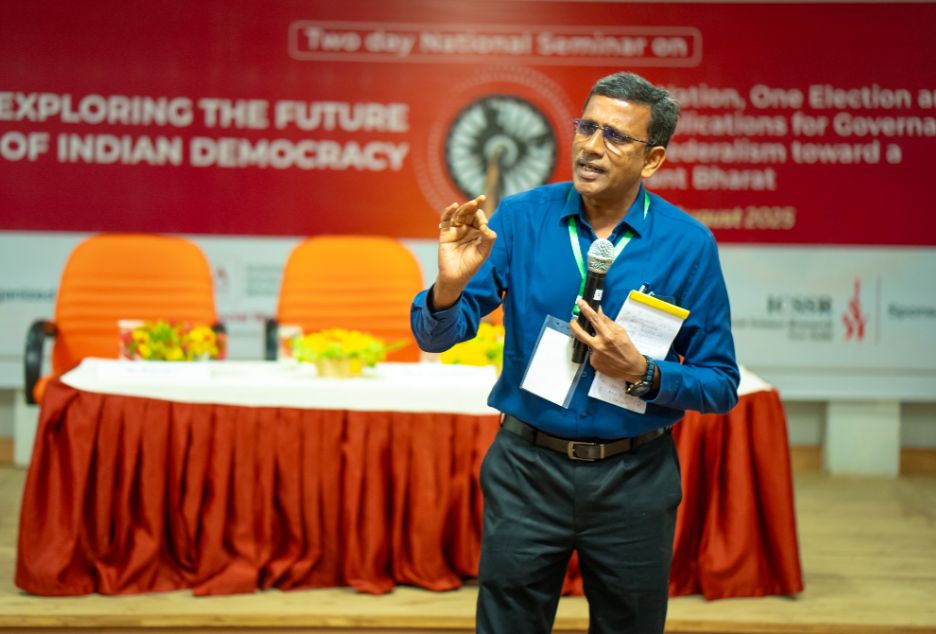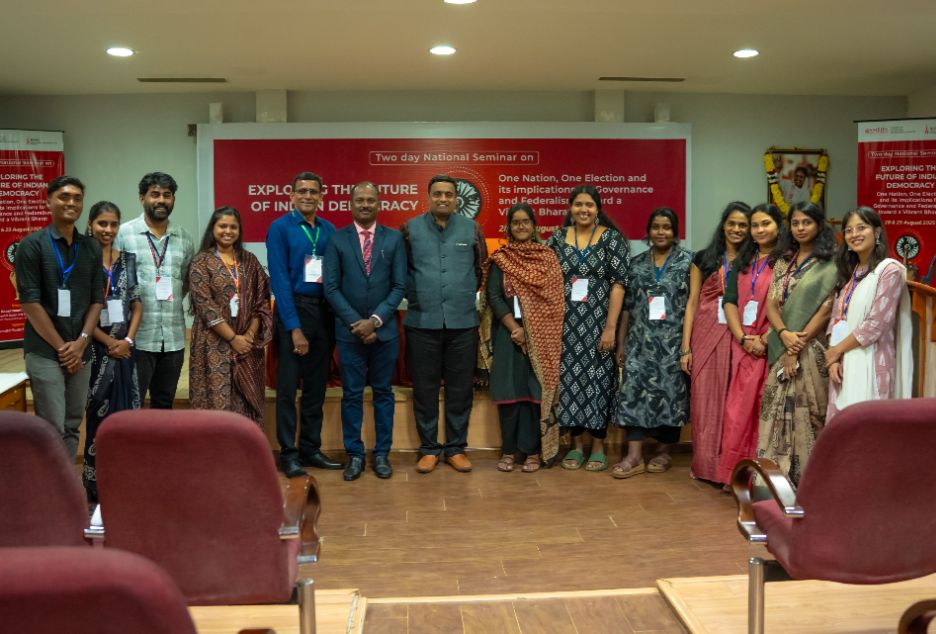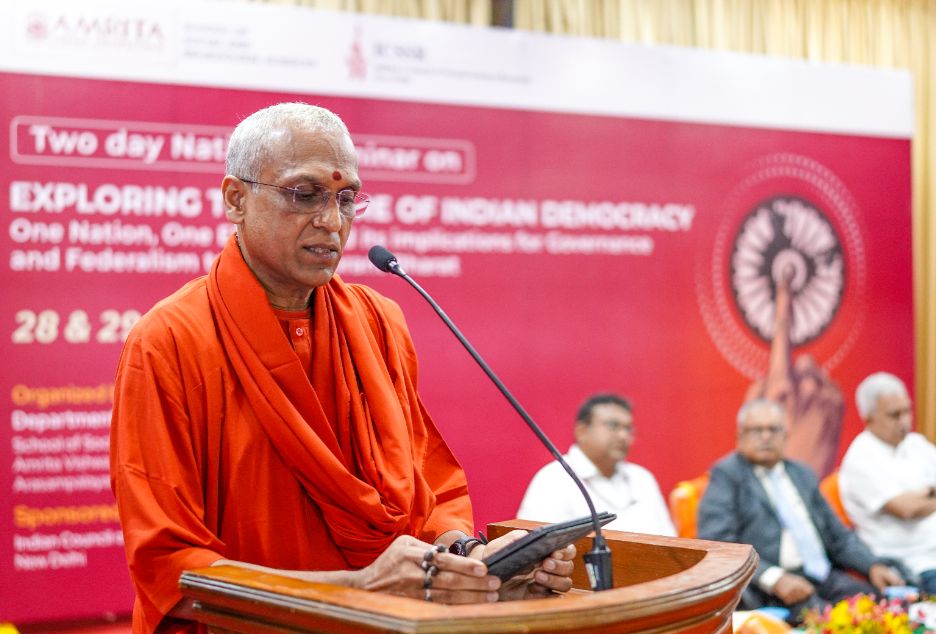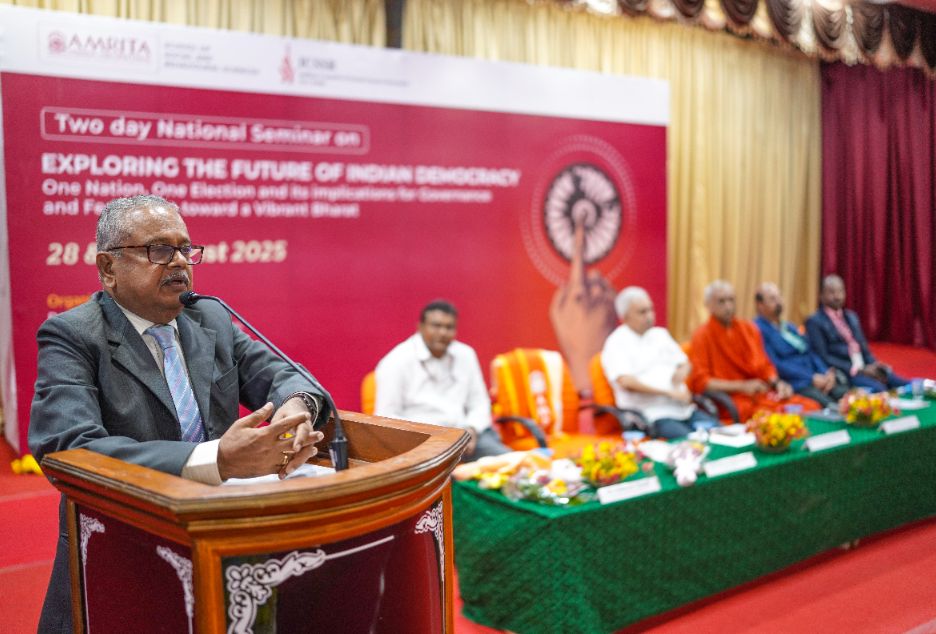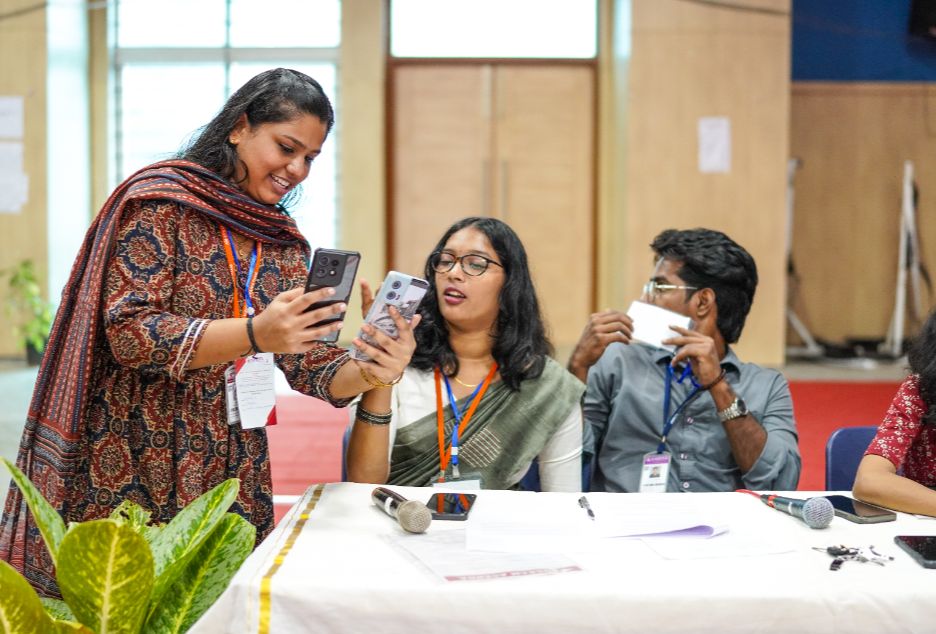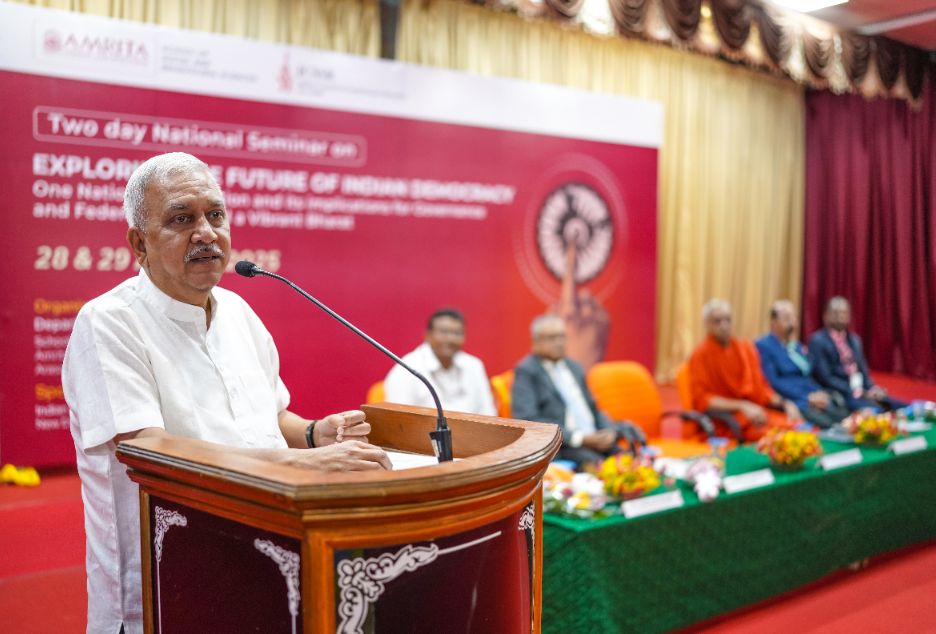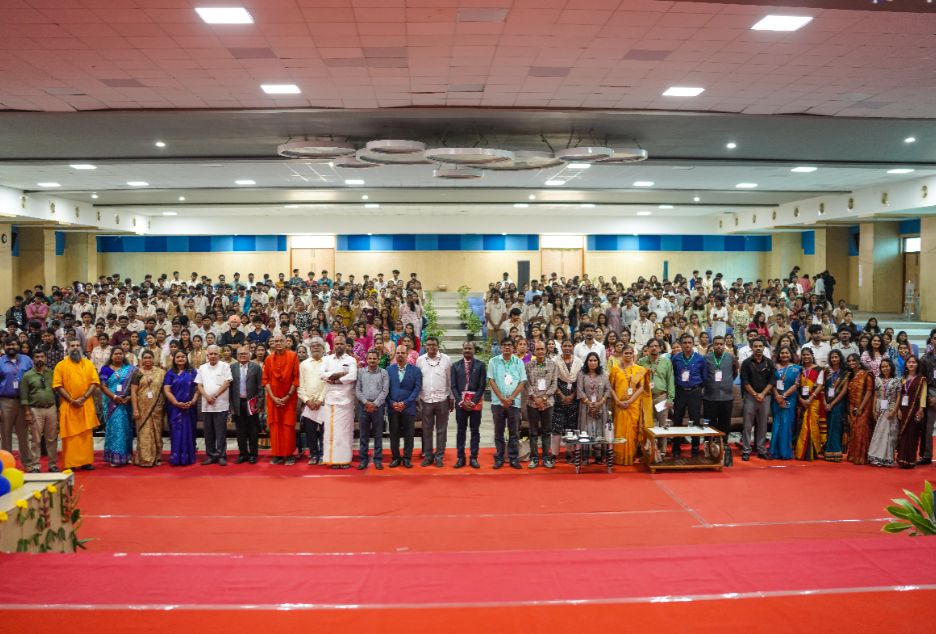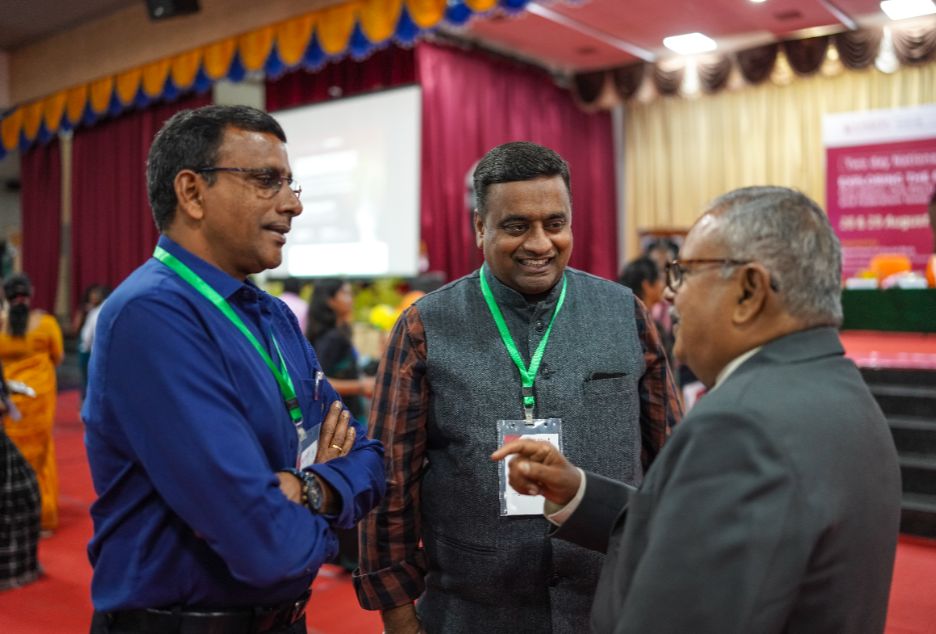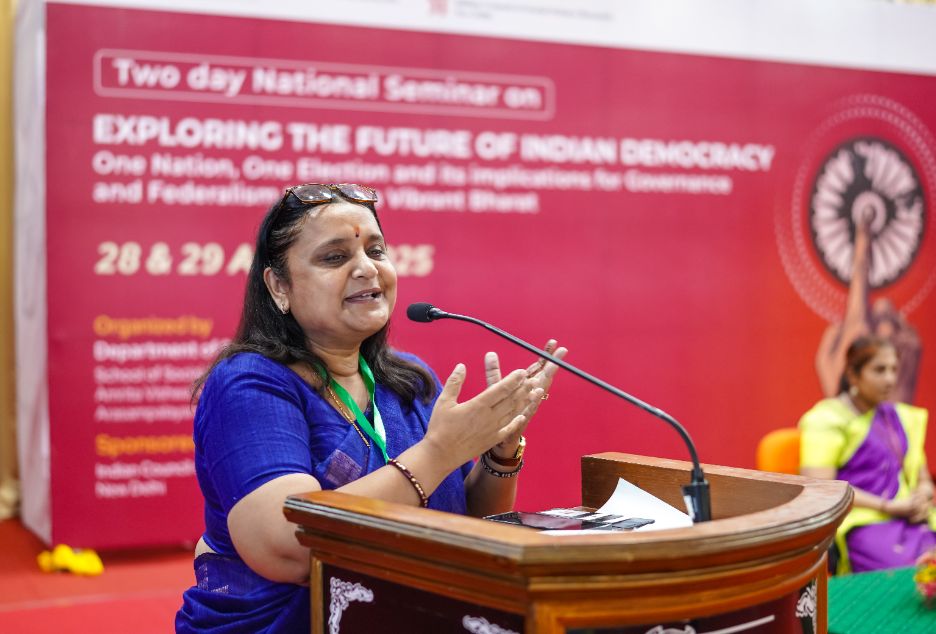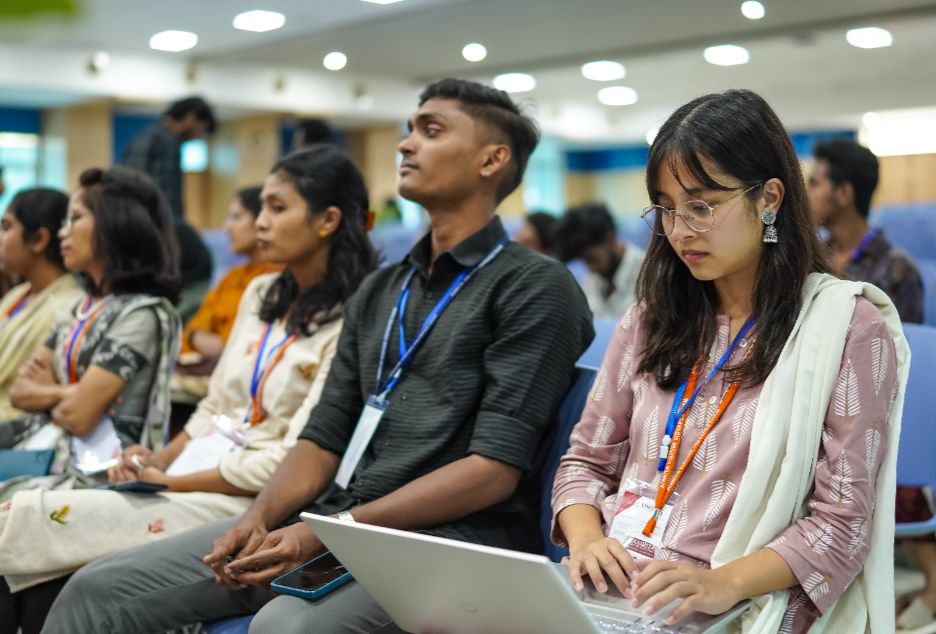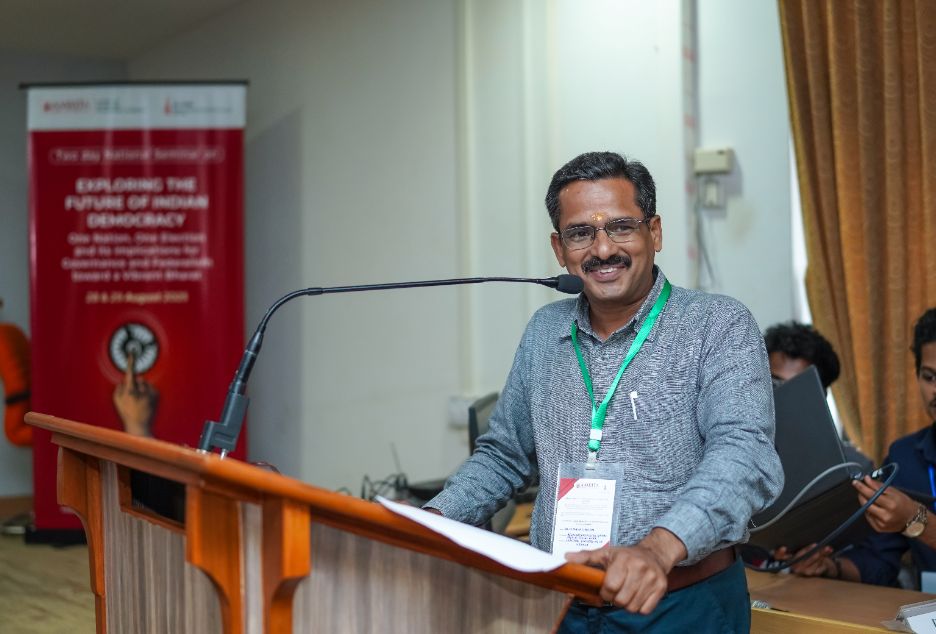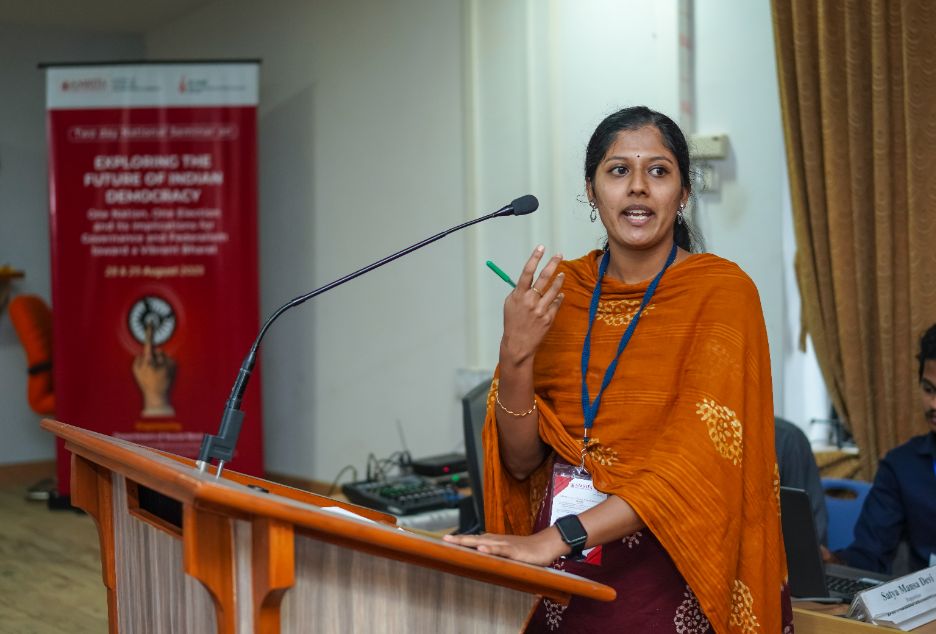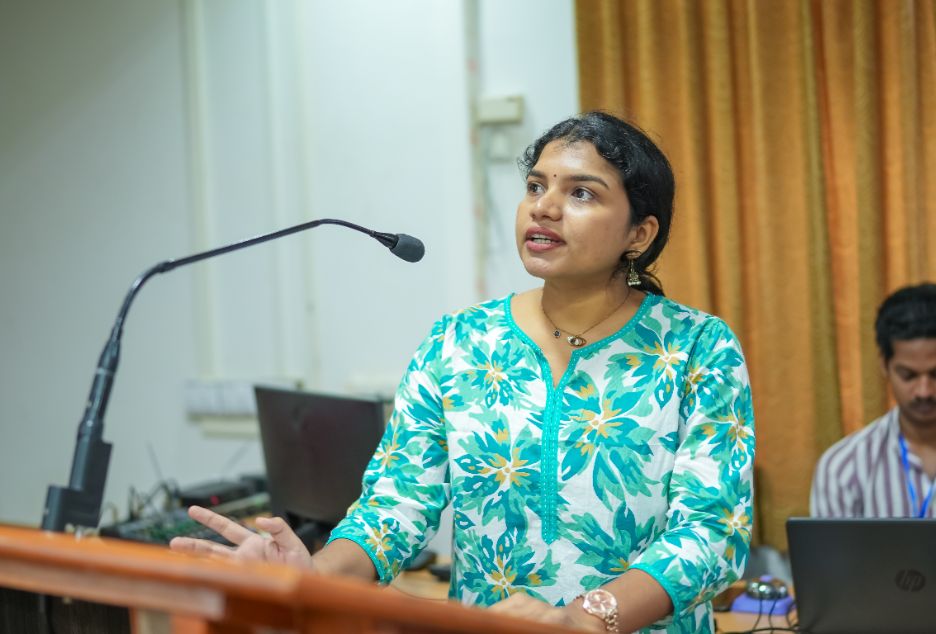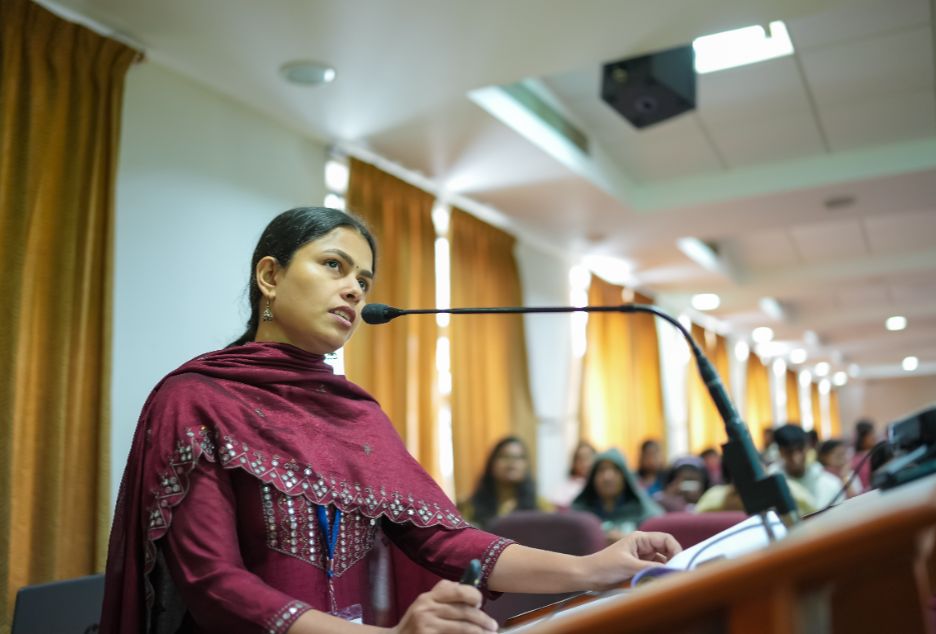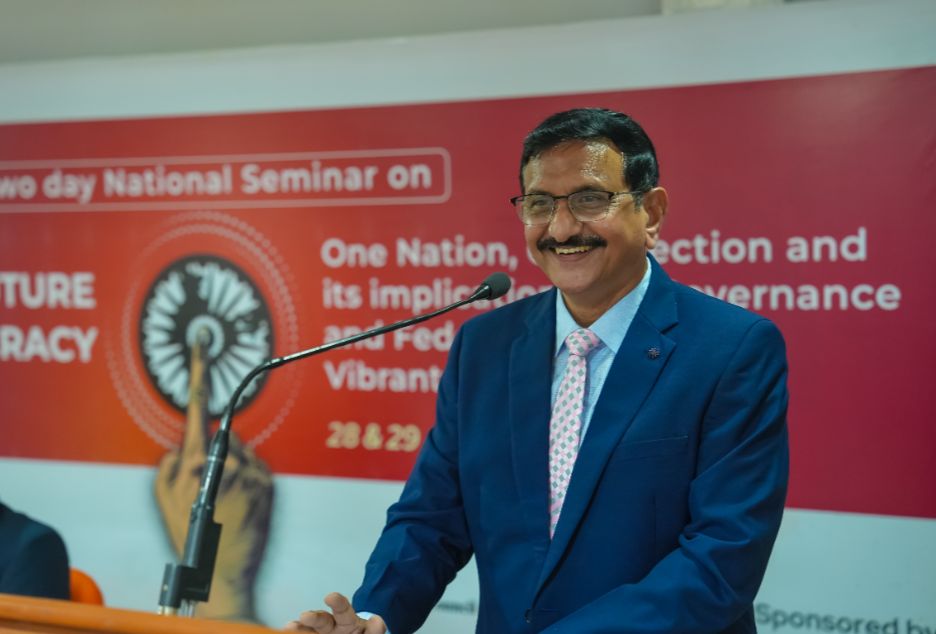Programs
- M. Tech. in Automotive Engineering -Postgraduate
- Master of Physician Associate (M.PA) – (Medicine, Surgery) 2 Year -Postgraduate
The National Seminar on “Exploring the Future of Indian Democracy: One Nation, One Election and Its Implications for Governance and Federalism toward a Vibrant Bharat” brings together scholars, practitioners, and policymakers to critically engage with the evolving debate on the feasibility and implications of simultaneous elections in India. The concept of One Nation, One Election (ONOE) envisions synchronizing Lok Sabha and state assembly elections to reduce electoral costs, improve governance, and minimize policy paralysis. While international examples like South Africa and Sweden offer optimistic models, India’s unique federal and socio-political landscape raises important constitutional, administrative, and democratic concerns. This seminar provides a platform for rigorous interdisciplinary dialogue, examining ONOE’s potential impact on federalism, political diversity, economic efficiency, civic participation, and electoral integrity. By fostering academic and policy discourse, the seminar aims to contribute meaningfully to shaping the future of India’s democratic processes in a way that is inclusive, participatory, and constitutionally sound.

Focus: Examining the feasibility, legality, and institutional readiness for ONOE.
Sub-themes:
Focus: Evaluating how ONOE interfaces with India’s federal character and governance systems.
Sub-themes:
Focus: Exploring how synchronized elections could affect development and resource utilization.
Sub-themes:
Focus: Understanding how ONOE could reshape citizen engagement and democratic behavior.
Sub-themes:
Focus: Positioning social work perspectives in strengthening democracy through local governance and participation.
Sub-themes:
Focus: Drawing from global experiences and scholarly insights into election synchronization.
Sub-themes:

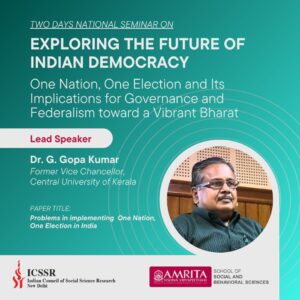
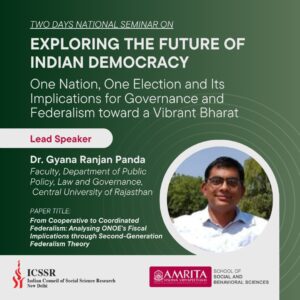

June 30, 2025
Abstract Last Date
July 05, 2025
Acceptance of Abstract
July 20, 2025
Full Paper Submission Last Date
August 28 – 29, 2025
Date of the Seminar
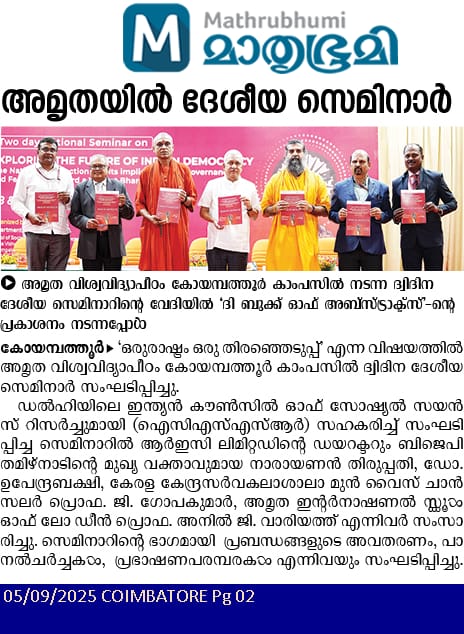
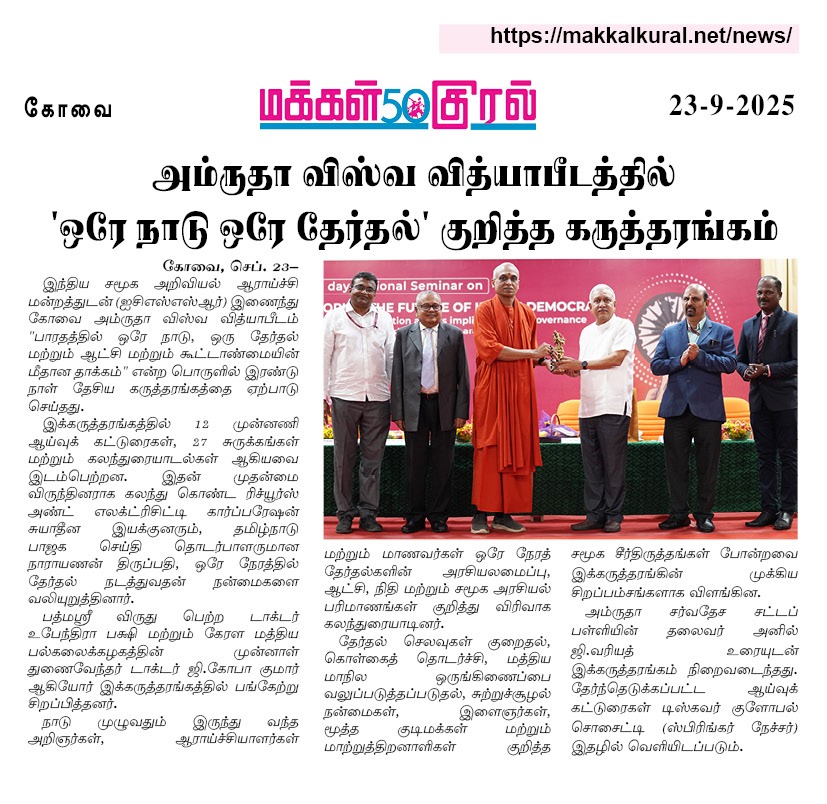
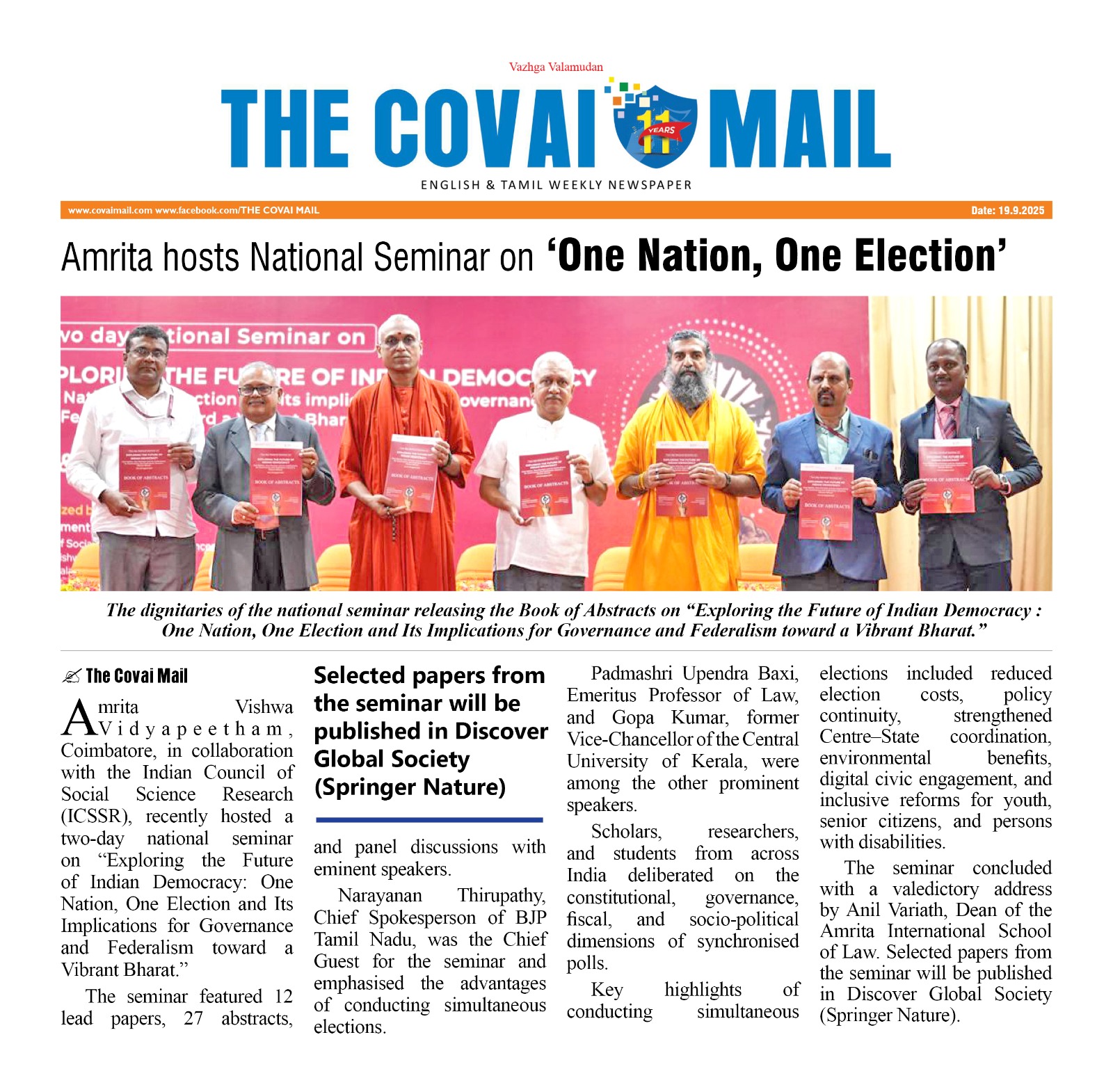
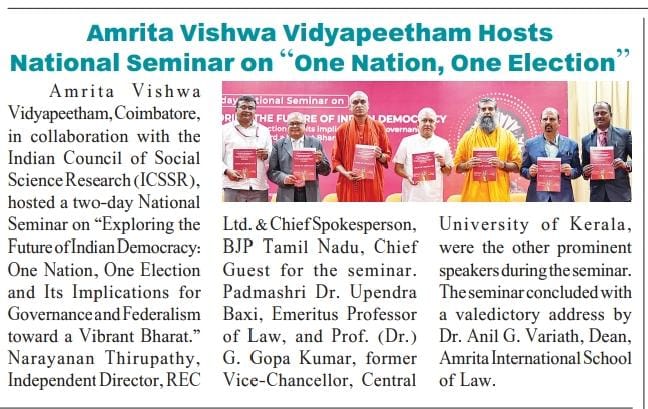
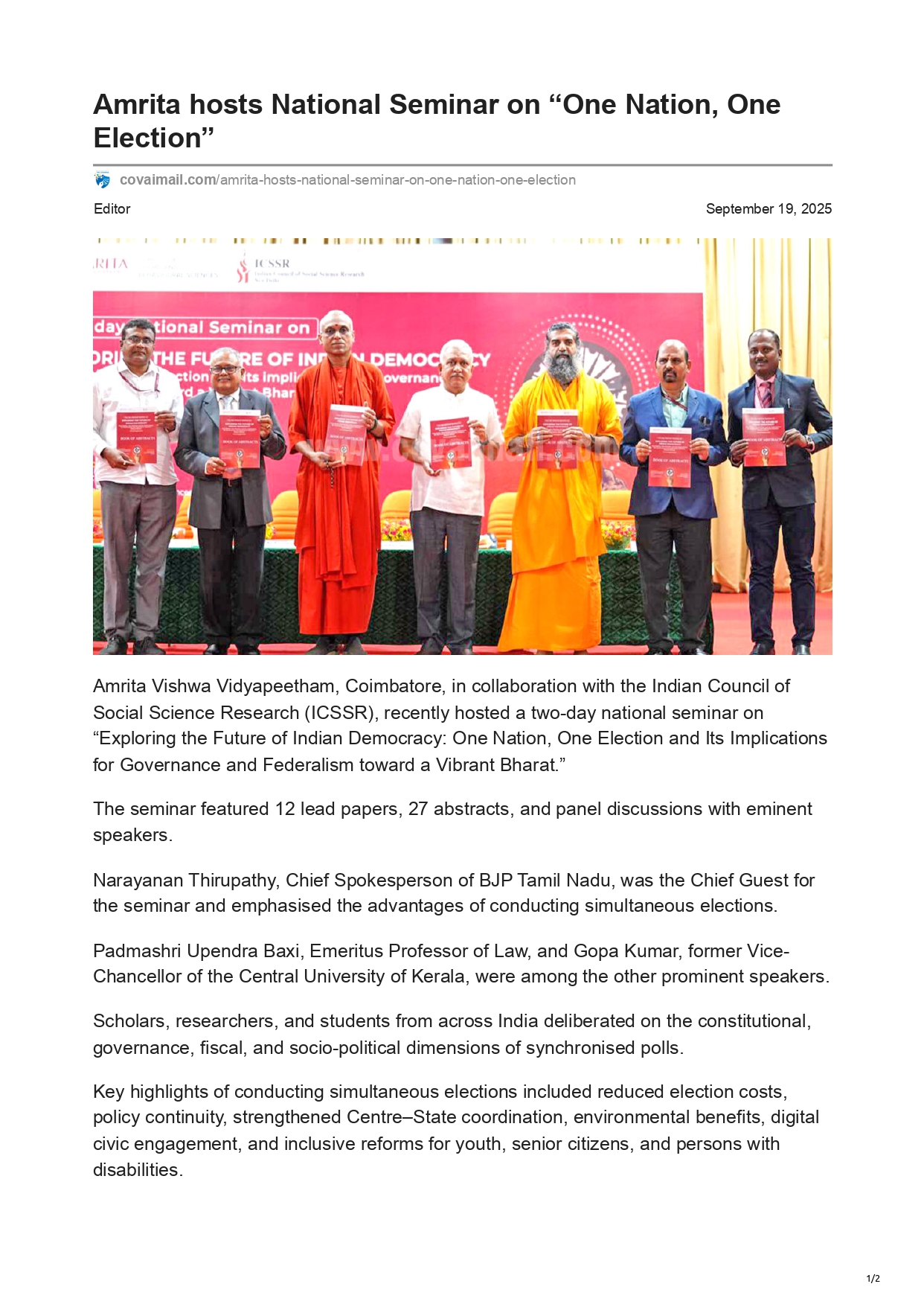
Amrita Vishwa Vidyapeetham, a multi-campus, multi-disciplinary university established by Sri Mata Amritanandamayi Devi (Amma), is one of India’s leading private institutions. It is accredited with an ‘A++’ grade by NAAC and consistently ranks among the top universities in India, holding the 7th position in the NIRF 2024 rankings. Amrita offers over 300 undergraduate, postgraduate, and doctoral programs across diverse fields, including Engineering, Medicine, Social Sciences, and more. With nine campuses spread across India, Amrita is known for its commitment to academic excellence, humanitarian values, and global collaborations, making it a hub for transformative education and impactful research.

The School of Social and Behavioural Sciences (SSBS) at Amrita Vishwa Vidyapeetham is a premier institution dedicated to addressing societal challenges through education and research. Spread across three campuses in Amritapuri, Coimbatore, and Faridabad, SSBS offers programs like BSW (Hons), MSW, M.Sc. in Cognitive Science, and Ph.D. in Social Sciences. It is home to India’s only UNESCO Chair in Gender Equality and Women’s Empowerment. SSBS integrates rigorous academics with compassionate research, focusing on areas like social justice, community development, and mental health. Its faculty are engaged in impactful projects that foster sustainable development and positive social change.

By Bus: The nearest major bus terminals are at Ukkadam (Coimbatore) (about 19 kms) and Pollachi (about 26 kms) and There are regular bus services from Ukkadam and Pollachi. Coimbatore Marine College, in the Pollachi Main Road is a major landmark close to Amrita School of Social and Behavioural Sciences, Arasamplayam. Myleripalayamprivu is situated between Marine College (20 kms from Ukkadam Bus stand and 23 kms from Pollachi). Follow the road towards to Arasamplayam to Amrita School of Social and Behavioural Sciences (3 kms from main road).
By Train: Coimbatore is a major railway junction on the Southern Railwaysconnected India’s major cities. The distance to Amrita School of Social and Behavioural Sciences is 20kms.
By Air: The closest airport is Coimbatore, located about 31 kilometers from the campus. Most airlines operate flights to Coimbatore from all major cities in India.
Amrita School of Social and Behavioural Sciences
J. P. Nagar, Arasampalayam,
Myleripalayam (via.),
Coimbatore – 642 109,
Tamil Nadu, India.
Phone : 0422 2685000
